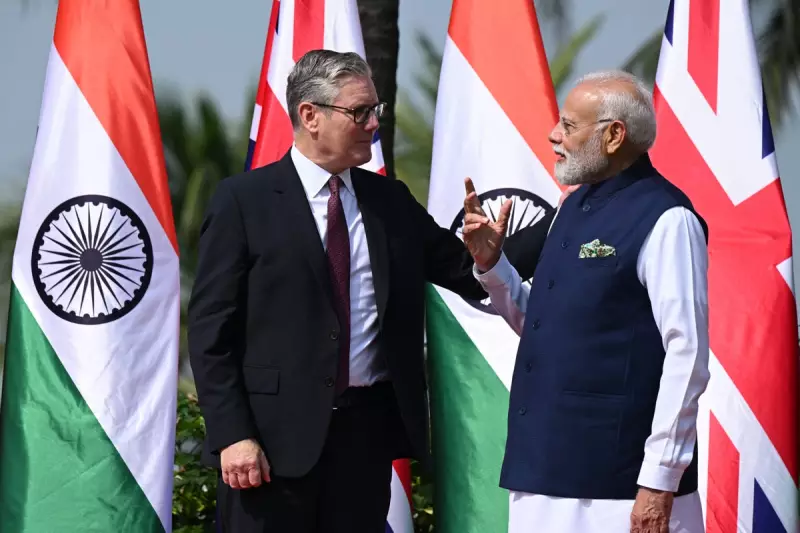
In a bold diplomatic move that signals Britain's potential foreign policy shift, Labour leader Sir Keir Starmer has directly challenged Indian Prime Minister Narendra Modi over his country's relationship with Vladimir Putin's Russia.
High-Stakes Diplomacy
The confrontation occurred during Starmer's crucial three-day trade mission to India, where he emphasised that no nation should be "able to exploit the change of government in the UK" to weaken international opposition to Russia's invasion of Ukraine.
Speaking with characteristic diplomatic precision, Starmer told reporters: "I'm obviously very pleased to be able to undertake this visit, but there are obvious areas where we have differences with India, and I will raise those."
Strategic Importance
The Labour leader's visit carries significant weight, coming as polls consistently show his party heading for a potential landslide victory in the next general election. His message to Modi underscores Labour's commitment to maintaining Britain's staunch support for Ukraine, regardless of political changes at home.
Starmer made clear: "It's particularly important in the light of the change of government that might happen in the UK that we send a very clear message that the position in relation to Ukraine is not going to change."
Building Bridges Amid Differences
Despite the frank discussion about Russia, Starmer's visit focused heavily on strengthening the UK-India relationship, particularly around trade and security cooperation. The Labour leader met with business leaders in Mumbai and is scheduled to hold further meetings with political figures in Delhi.
The delicate balancing act reflects Starmer's approach to foreign policy – maintaining principle on fundamental issues like Ukraine while pursuing practical cooperation where interests align.
Looking Ahead
This visit represents Starmer's most significant international test to date, offering voters a preview of how a Labour government would handle complex diplomatic relationships. The manner in which he navigates these sensitive discussions with one of Britain's most important international partners could define his early foreign policy credentials.
As geopolitical tensions continue to reshape international alliances, Starmer's message remains unequivocal: Britain's commitment to Ukrainian sovereignty transcends party politics, and future partners should plan accordingly.






